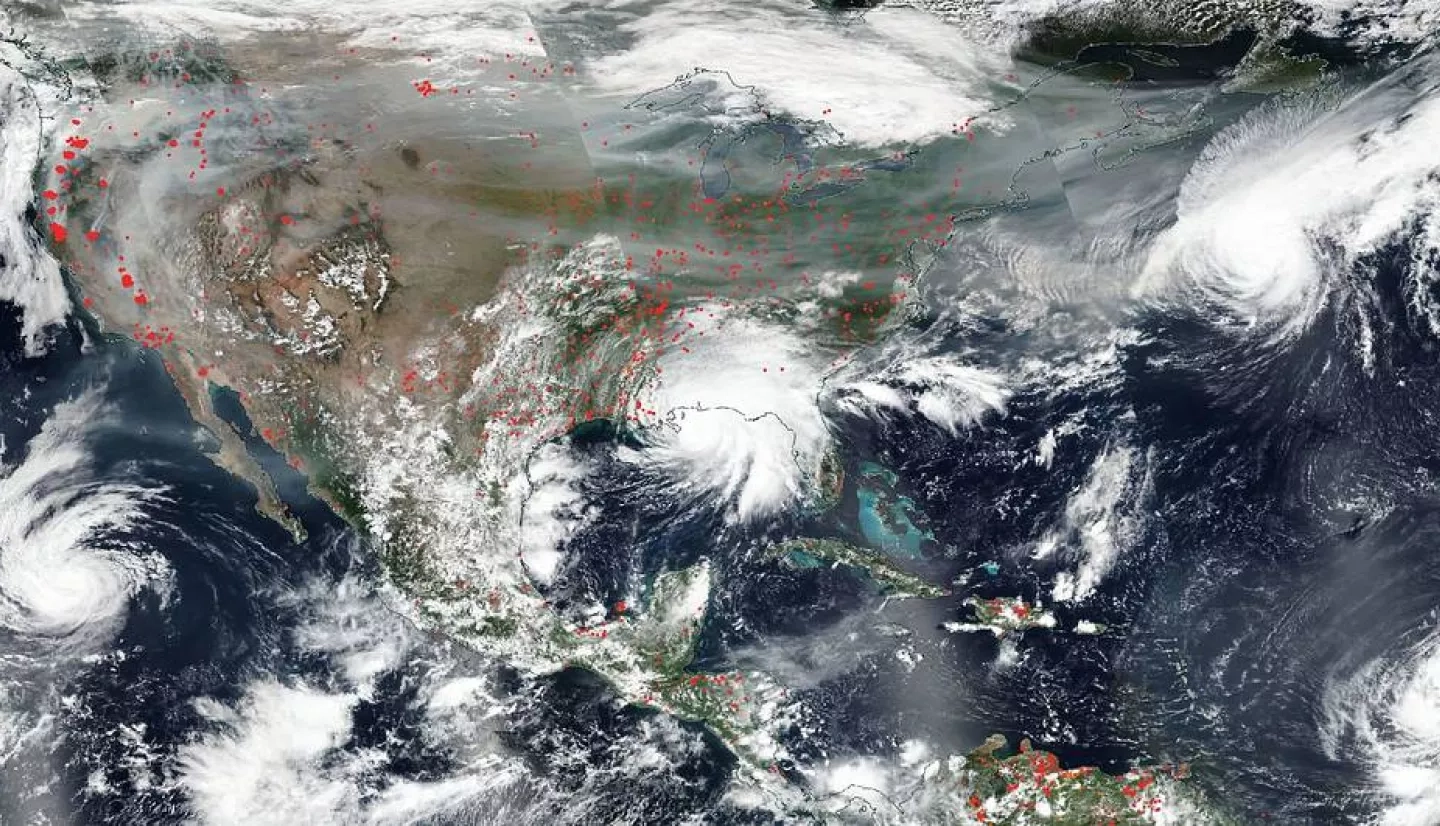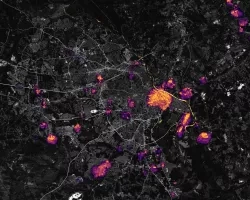A warming planet fanned the flames of extreme wildfires and intensified hurricanes and tropical storms
By most accounts, 2020 has been a rough year for the planet. It was the warmest year on record, just barely exceeding the record set in 2016 by less than a tenth of a degree according to NASA’s analysis. Massive wildfires scorched Australia, Siberia, and the United States’ west coast – and many of the fires were still burning during the busiest Atlantic hurricane season on record.
“This year has been a very striking example of what it’s like to live under some of the most severe effects of climate change that we’ve been predicting,” said Lesley Ott, a research meteorologist at NASA’s Goddard Space Flight Center in Greenbelt, Md.
Decades of greenhouse gas emissions set the stage for this year’s events
Human-produced greenhouse gas emissions are largely responsible for warming our planet. Burning fossil fuels such as coal, oil, and natural gas releases greenhouse gases – such as carbon dioxide – into the atmosphere, where they act like an insulating blanket and trap heat near Earth’s surface.
“The natural processes Earth has for absorbing carbon dioxide released by human activities – plants and the ocean – just aren’t enough to keep up with how much carbon dioxide we’re putting into the atmosphere,” said Gavin Schmidt, climate scientist and Director of NASA’s Goddard Institute for Space Studies (GISS) in New York City.
Carbon dioxide levels have increased by nearly 50% since the Industrial Revolution 250 years ago. The amount of methane in the atmosphere has more than doubled. As a result, during this period, Earth has warmed by about 2 degrees Fahrenheit (just over 1 degree Celsius).
Climate modelers have predicted that, as the planet warms, Earth will experience more severe heat waves and droughts, larger and more extreme wildfires, and longer and more intense hurricane seasons on average. The events of 2020 are consistent with what models have predicted: extreme climate events are more likely because of greenhouse gas emissions.
Read the full story: The Climate Events of 2020 Show How Excess Heat is Expressed on Earth



